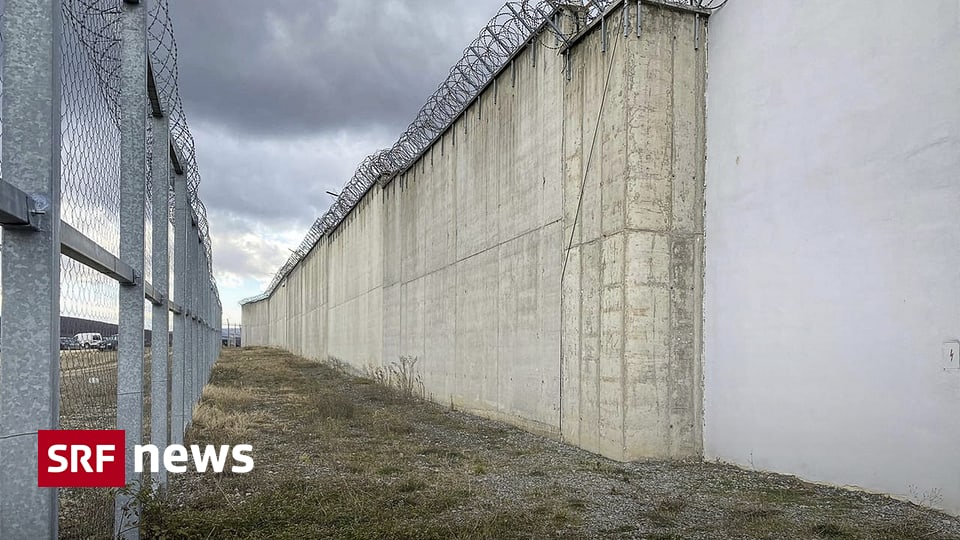300 of the deported detainees are supposed to serve their sentences in Kosovo. This was not the first attempt to outsource the “strange problem,” according to SRF correspondent Bruno Kaufmann.
Denmark’s prisons are full. The government assumes there will be a shortage of about 1,000 places in the next few years. That is why Denmark wants to transfer prisoners to Kosovo. The two countries will sign a similar agreement today. Detainees deported from third countries will be housed in Kosovo. There are currently 348 people in Danish prisons on the verge of deportation.
Danish Justice Minister Nick Hekrupp confirmed that the same rules apply in prisons as in Danish prisons. He is sure that the agreement will withstand scrutiny by the European Court of Human Rights.
Legend:
Ceylan Prison, 50 kilometers from Kosovo’s capital, Pristina, is said to be under Danish administration. It will be operated by employees of Kosovo.
Keystone
The plans are controversial, as reported by SRF Northern Europe correspondent Bruno Kaufmann. “There is a lot of criticism from the wider public.” Many have asked themselves how the promised “Danish prison conditions” can be maintained. For example, when it comes to visiting relatives in a remote detention center.
“In addition, there are fundamental concerns about outsourcing sovereign state functions abroad,” Kaufman says. “However, there is broad consensus in Parliament on the plans – from the Socialists to the Nationalists of the Danish People’s Party.”
The Danish government says overcrowded prisons have made the unusual move necessary. But for Kaufmann, it is about more fundamental issues – specifically Denmark’s “foreign problem”, which has been a hot political issue in the country for decades.
The reporter looks back a long way in history. Since Denmark became a democracy and gradually lost its overseas territories, a very unique way of dealing with foreigners has developed: “Democracy and an open society have always been understood as something very homogeneous, an integral part of a monolingual society.”
More “attempts to outsource”
The country in general has suffered from international developments. Kaufman said foreign and domestic policy are strictly separated. This is the reason for repeated attempts in recent years to isolate rejected aliens.
The former bourgeois government first attempted to build a deportation prison on a remote island in the Baltic Sea. The plans failed due to resistance from the local population. The current social democratic government wanted to outsource asylum procedures to Rwanda. These plans did not materialize either.

“Tv specialist. Friendly web geek. Food scholar. Extreme coffee junkie.”





More Stories
Pedro Sanchez is considering resigning after filing a complaint against his wife
Extreme heat warning in Thailand and the Philippines
Hovering at 600 km/h: Japan's new bullet train delayed